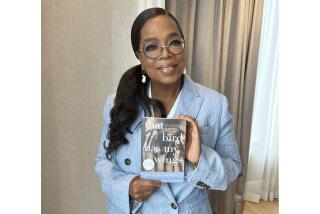Ed Asner Testifies on Convicted Killer’s Behalf
- Share via
The convicted killer of a police officer wrote a “wonderfully encouraging” screenplay from California’s death row, award-winning actor Ed Asner testified Tuesday on behalf of the man.
Attorneys for the convict, Kenneth Gay, hope Asner’s words will help persuade a jury to sentence Gay to life in prison rather than death.
Gay’s screenplay, “A Children’s Story,” received a $500 prize in 1994, Asner testified. The contest was sponsored by a writers workshop affiliated with the American Film Institute.
A theater, television and film actor for nearly 50 years, Asner testified that he enjoyed the screenplay and did not know the author was on death row.
“I was highly impressed,” testified Asner, who referred to the work as a “wonderfully encouraging piece about kids.”
Gay, 42, was convicted in 1985 of the murder of Los Angeles Police Department Officer Paul Verna, who had stopped the car Gay was in for a traffic violation.
Prosecutors said the men in the car, who were implicated in a string of robberies in the weeks before, were afraid that Verna would arrest them. Prosecutors alleged that another passenger, Raynard Cummings, fired first and then passed the gun to Gay, who then shot the officer five more times.
Cummings too was convicted of murder and sentenced to death.
In 1998, Gay’s death sentence was overturned by the state Supreme Court on the grounds that his lawyer, Daye Shinn, was incompetent. But the court left intact Gay’s guilty verdict.
Though Gay’s guilt is no longer at issue, his new defense team has been trying to argue that he deserves to live because he’s an innocent man who never fired at the officer.
Los Angeles Superior Court Judge L. Jeffrey Wiatt has excluded all evidence that would challenge the original jury guilty verdict.
Defense attorneys contend that the evidence would illuminate the circumstances of the crime, Gay’s role and his culpability--all issues that the law permits the jury to consider when deciding to vote for life or death.
“They’re trying to muzzle the defense,” defense attorney Kenneth Lezin said outside the courtroom. “This is an amazing situation where we can prove that Kenny Gay didn’t do the shooting. . . . They’re trying to kill the defendant without hearing both sides of the story, including confessions by the killer that he did it himself.”
Experts say the fight between the prosecution and the defense over potentially exonerating evidence demonstrates a tension in the law.
“The law is clear. If you have a conviction that’s been upheld, it can’t be relitigated for this jury,” said USC law professor Erwin Chemerinsky. But the law also permits the penalty-phase jury to consider the question: How morally culpable is this person? “There’s no precise line,” Chemerinsky said. “The trial judge has a lot of discretion to determine what type of mitigating evidence to allow in.”
To that end, what defense attorneys are trying to do is “totally legitimate,” said Elisabeth Semel, director of the American Bar Assn.’s Death Penalty Representation Project. “It’s a death sentence. You want to be absolutely sure.”
Asner’s testimony was a boost for the defense, said Gay’s attorney, Mark Zuckman. He said it proves that Gay has talent and lots to contribute to society.
More to Read
Sign up for Essential California
The most important California stories and recommendations in your inbox every morning.
You may occasionally receive promotional content from the Los Angeles Times.













